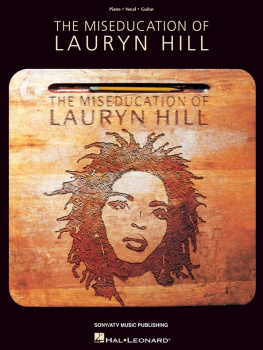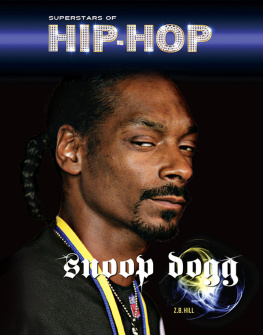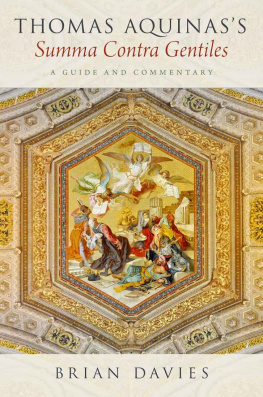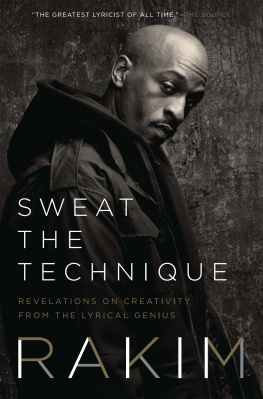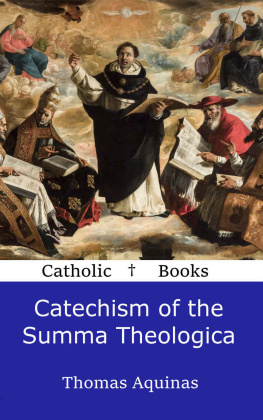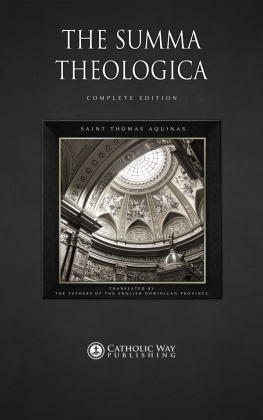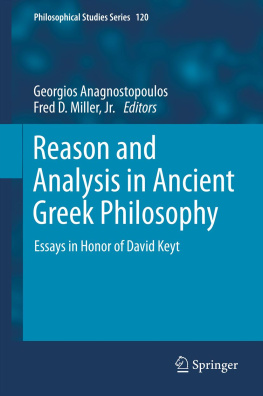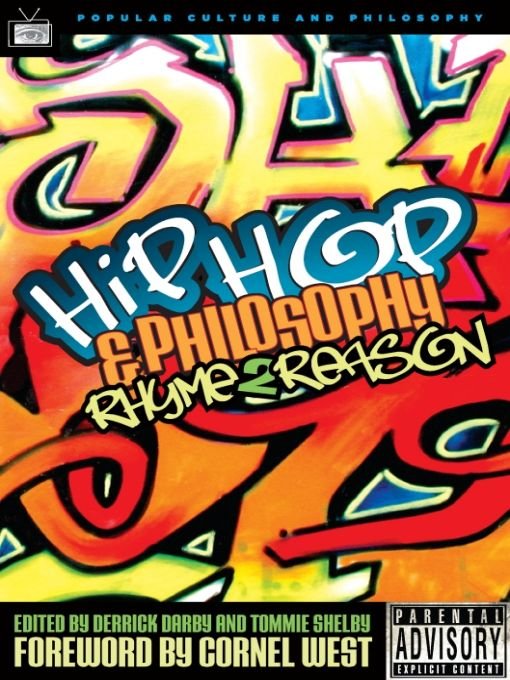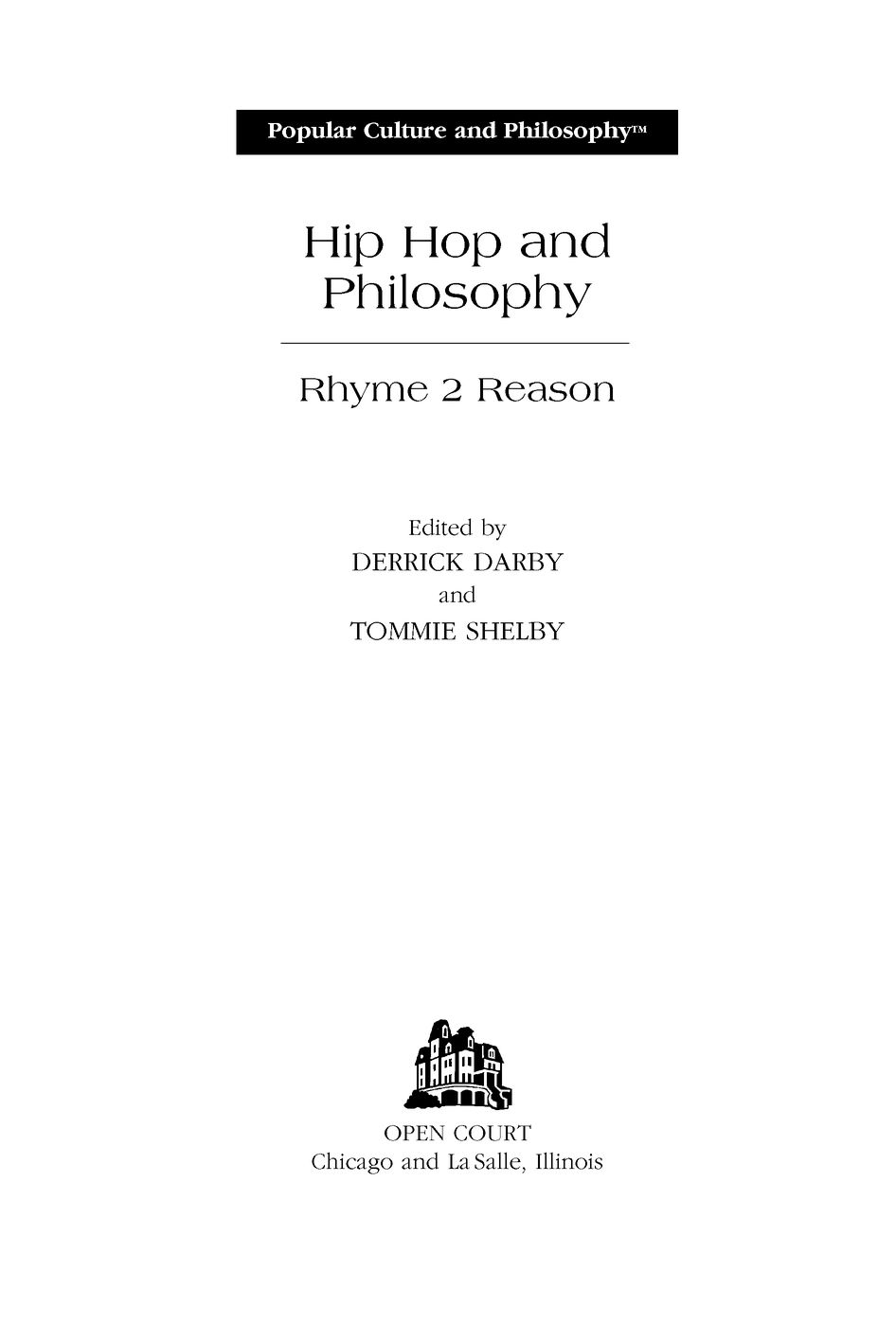Table of Contents
TRUE HIP-HOP HEADS HAVE LONG UNDERSTOOD that hip hops fifth elementthe oft-forgotten element of knowledge or consciousnessis the most critical aspect of this thing we call hip-hop culture. This fact was not lost on Derrick Darby and Tommie Shelby, who dare to support the claim that hip hop is a legitimate worldview, primed to redefine what it means to be one with the world.
MARK ANTHONY NEAL, author of New Black Man
STEP ASIDE SOCRATES, KANT, AND SARTRE new seekers of philosophical wisdom are on the scene, and theyre giving us the word about sexuality, violence, language, politics, and other problems of philosophy. Ear to ground and mic in hand, this posse of philosophers are pondering the truths of inner-city life through hip-hop lenses, and broadcasting to the hood and the burbs. Big props to Derrick Darby, Tommie Shelby, and their philosophical crew for maintaining existential and ontological authenticity, aka keeping it real, in bringing us their message. Word up!
CHARLES W. MILLS, author of The Racial Contract
HIP HOP AND PHILOSOPHYCONTRIBUTES immeasurably to the rich traditions of both philosophy and hip hop. Derrick Darby and Tommie Shelby have dropped the needle on some slamming tracks, merging the considered flow of the academy with the funk and fury of the urban beat. The range of concepts under analysis here is vast and impressive. The level of philosophical inquiry is consistently high and the spirit of hip hop is carefully, lovingly evoked in ways that enrich our understanding of the contemporary human condition.
MURRAY FORMAN, author of The Hood Comes First
PROFOUND, PROVOCATIVE, AND EVEN PLAYFUL,Hip Hop and Philosophy is a must read for anyone interested in the philosophical questions raised by American popular culture or the African American experience. These hip-hop scholars put aside the divide between high and low culture and just hit you with depth and realness. Hip Hop and Philosophy is a brilliant pedagogical tool and a wonderfully insightful journey into a music form that has captivated the globe. Big Up!
IMANI PERRY, author of Prophets of the Hood
Popular Culture and Philosophy
Series Editor: William Irwin
VOLUME 1
Seinfeld and Philosophy: A Book
about Everything and Nothing
(2000) Edited by William Irwin
VOLUME 2
The Simpsons and Philosophy:
The Doh! of Homer (2001)
Edited by William Irwin, Mark T.
Conard, and Aeon J. Skoble
VOLUME 3
The Matrix and Philosophy:
Welcome to the Desert of the Real
(2002) Edited by William Irwin
VOLUME 4
Buffy the Vampire Slayer and
Philosophy: Fear and Trembling
in Sunnydale (2003) Edited by
James B. South
VOLUME 5
The Lord of the Rings and
Philosophy: One Book to Rule
Them All (2003) Edited by
Gregory Bassham and Eric
Bronson
VOLUME 6
Baseball and Philosophy:
Thinking Outside the Batters Box
(2004) Edited by Eric Bronson
VOLUME 7
The Sopranos and Philosophy:
I Kill Therefore I Am (2004)
Edited by Richard Greene and
Peter Vernezze
VOLUME 8
Woody Allen and Philosophy:
You Mean My Whole Fallacy Is
Wrong? (2004) Edited by Mark T.
Conard and Aeon J. Skoble
VOLUME 9
Harry Potter and Philosophy:
If Aristotle Ran Hogwarts (2004)
Edited by David Baggett and
Shawn E. Klein
VOLUME 10
Mel Gibsons Passion and
Philosophy: The Cross, the
Questions, the Controversy (2004)
Edited by Jorge J.E. Gracia
VOLUME 11
More Matrix and Philosophy:
Revolutions and Reloaded
Decoded (2005) Edited by
William Irwin
VOLUME 12
Star Wars and Philosophy (2005)
Edited by Jason T. Eberl and
Kevin S. Decker
VOLUME 13
Superheroes and Philosophy (2005)
Edited by Tom Morris and Matt
Morris
VOLUME 14
The Atkins Diet and Philosophy:
Chewing the Fat with Kant and
Nietzsche (2005) Edited by Lisa
Heldke, Kerri Mommer, and
Cynthia Pineo
VOLUME 15
The Chronicles of Narnia and
Philosophy: The Lion, the Witch,
and the Worldview (2005)
Edited by Gregory Bassham and
Jerry L. Walls
VOLUME 16
Hip Hop and Philosophy: Rhyme
2 Reason (2005) Edited by
Derrick Darby and Tommie
Shelby
IN PREPARATION:
Bob Dylan and Philosophy (2006)
Edited by Carl Porter and Peter
Vernezze
Monty Python and Philosophy:
Nudge Nudge, Think Think
(2006) Edited by Gary L.
Hardcastle and George A. Reisch
This book is dedicated to the memory of
Christopher L. Shelby, a loving brother,
committed teacher, and true hip-hop head,
and to two beloved daughters,
Nastassia and Tatiana Darby,
the future of hip hop.
Foreword
This pioneering and provocative book connects philosophy as a way of life to contemporary black creative forms of meaning and feeling. Philo-sophia (love of wisdom) was established in the West by Platos world-historical enactment of the Socratic literary genrea genre of cross-examination and artistic depiction that wrestles with the universal issues of life and death, joy and sorrow, justice and injustice, courage and cowardice, love and heartbreak. Platos magnificent invention was indebted to the mimes of Sophron and his son Xenarchus and the comedies of Aristophanesboth poetic forms that portrayed the realities and lives of ordinary men and women. Platos fundamental aims were threefoldto immortalize the thoughts and deeds of his mentor Socrates after his earth-shaking death, to dislodge poetry as the paramount authority for wisdom with philosophy, and to put forward a desirable way of life for achieving order for the soul and society in a world of irrational passions and pervasive ignorance.
Hip-hop music was created by talented black urban youth in the United States that fused New World African musical forms and rhetorical styles with new postmodern technologies. Like the spirituals, blues, and jazzthe greatest art forms to emerge from the U.S.A.hip-hop music expressed and enacted Socratic parrhesia (bold, frank, and plain speech in the face of conventional morality and entrenched power). The basic aims of hip-hop music are threefoldto provide playful entertainment and serious art for the rituals of young people, to forge new ways of escaping social misery, and to explore novel responses for meaning and feeling in a market-driven world.
This rich collection of essaysedited by the visionaries Derrick Darby and Tommie Shelbybrings together the work of academic philosophers of all colors on the most influential cultural phenomena in the entertainment industry on the globe. This courageous effort requires not only that one know much across disciplines but also dig deep into African American life and culture.
In other words, one must adopt subtle metaphilosophical views that permit one to relate philosophical inquiry to art and entertainment in an illuminating manner and show how sophisticated forms of


